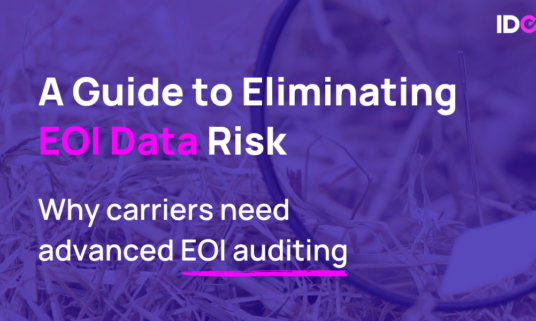Ideon Blog
December 07, 2020
By: Dan Langevin
Covid is forcing a reckoning for the health insurance industry—and that’s good

By Michael Levin
Co-founder and CEO, Ideon
The Covid-19 pandemic is a once-in-a-lifetime stress test of the healthcare system. And while most of the attention has rightly been focused on front-line healthcare delivery, the provision of employer-sponsored health insurance has also been substantially disrupted. Those carriers, brokers, and employers who respond with speed, creativity and flexibility will emerge from this crisis with more modern, efficient, and resilient systems than ever before. Those who don’t, I believe, will regret their failure to seize the moment.
Until Covid, a great deal of the health insurance sales cycle has involved face-to-face contact. Brokers met with employers, often using paper presentations to compare various options. Then, in open enrollment, many employees would explore their options by meeting in a cafeteria or conference room with carrier or broker reps. A lot of administrative details were still processed through paper forms.
Today, much of this interaction has gone digital, via video calls, webinars, micro sites, and apps. For some clients, this forced transition has meant a loss of intimacy and trust. But in general, those people who had been reluctant technology users have discovered the speed and convenience of online interaction.
At the same time, the pandemic has spurred some in the industry to modernize anachronistic practices. For example, some carriers have scrambled to figure out how to accept credit cards, as some business clients were no longer working in offices where they could easily cut checks.
We can expect a good deal of this behavior to continue and even expand after the pandemic subsides, further reducing costs and improving service quality throughout the industry.
But there are also more subtle changes that accompany these shifts from in-person to online interaction. To serve employers remotely, brokers are now providing access to online marketplace tools that allow such customers to compare plans and rates from multiple carriers.
To be sure, many insurance companies have long been ambivalent about the rise of new technology-driven, multi-carrier, distribution platforms. They would prefer to have direct interaction with brokers and clients, if not through their sales force than at least through proprietary online systems. Being just one item on a menu of carriers, they fear, neutralizes their differentiation, and focuses competition on price. Now, though, the market has been refocused by COVID, with brokers and employers alike demanding the transparency and efficiency of these platforms. As such, carriers are increasingly open to partnering with InsureTech companies.
Carriers have faced similar choices about how to inform customers of expanding coverage for telemedicine and testing, relaxed policy rules, and other changes in response with Covid. Some have largely restricted this information to their own sites and apps, offering a rich stream of communication to the tiny fraction of their customers who use those channels. But others have partnered with brokers and technology companies to distribute their content—finding that what they lose in control is more than matched by gains in reach.
This dilemma is neither new nor exclusive to the insurance industry. Airlines would rather sell tickets on their own sites than through Expedia. Banks would prefer you check your balance on their app, not Mint. But these companies have come to understand that they need to do business in the ways their customers want.
The insurance industry must continue to absorb this lesson. And I believe it will. Indeed, if the new Covid vaccines are as effective as initial reports suggest, I suspect that a year from now we will start to see a significant restructuring of the health insurance industry.
Because there’s no going back.
That is, a lot of customer behavior will already have permanently changed. Fewer people will work from offices, limiting the revival of face-to-face sales calls and common-area recruitment sessions. And many of even the most resistant to new technology will have learned to use digital tools for buying and managing their health insurance. Nobody will want to go back to filling out paper forms.
Most significantly, employers and plan participants will think back and remember how well—or how poorly—they were treated by their insurance companies.
Were they able to get information and handle transactions easily and efficiently?
Which companies responded creatively and with flexibility to the rapidly changing world—and which were stuck in an irrelevant past?
It’s a stress test for the entire industry. Not all will pass, but those that do will ultimately be grateful for the reckoning brought on by an otherwise awful pandemic.


